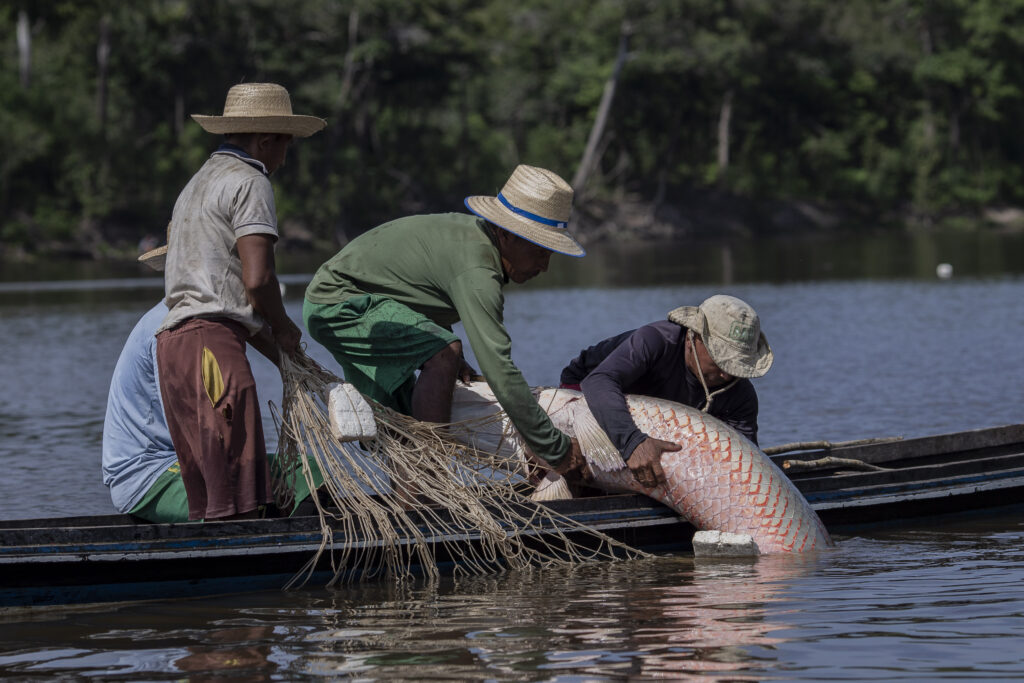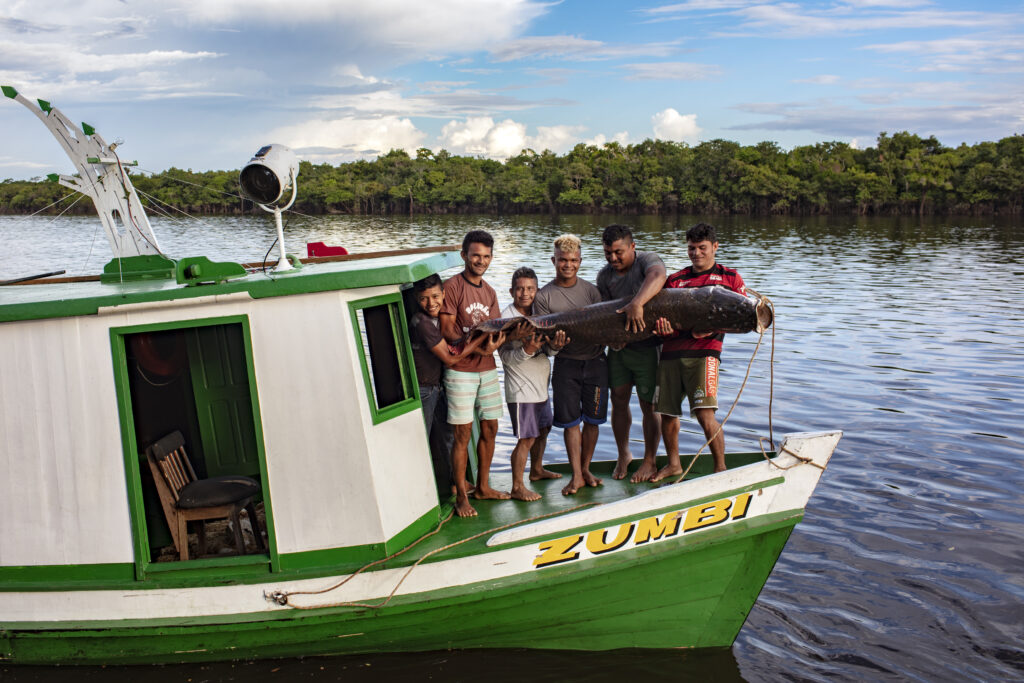Sustainable management of the arapaima: 25 years of a legacy of conservation
System implemented in the indigenous and riverside communities of the Amazon saved the pirarucu from extinction, uniting conservation of biodiversity and income generation
By Talita Oliveira | OPAN
Celebrated in the cuisine for its flavor and versatility, the pirarucu (Arapaima Gigas) It is not only one of the largest freshwater fish in the world, but also the protagonist of one of the most successful initiatives for conservation and income generation in the Amazon: the sustainable management of arapaima. In 2024, this exemplary initiative celebrates 25 years of implementation.
In 1990, Brazil began to adopt restrictive measures for arapaima fishing, which culminated in the total ban in 1996. of the species of wild flora and fauna in danger of extinction (CITES).

With the implementation of the management system, pirarucu was once again abundant in the Amazonian rivers, increasing its population by 99% between 2012 and 2016, with an average annual growth of 19%, according to Diagnosis made by the Pirarucu collective in 31 protected areas and fishing agreements in the Amazon. In addition to preserving arapaima and biodiversity, sustainable management brought benefits such as increasing income, strengthening social organization, reducing inequalities, greater food security and significant improvement in the quality of life of indigenous and traditional communities.
The indigenous role in the management of the arapaima
The Paumari people of Tapauá and the Deni of Xeruã are also part of this success story. Known as the “people of the waters”, the Tapauá paumari were one of the pioneers in the implementation of the sustainable management of the pirarucu in indigenous lands. In 2013 they carried out their first managed fishing and today they are a national reference in the activity, conquering, from the protection of the lakes and the regulation of fisheries, an increase of more than 600% of the arapaima population in their territory since the first count, in 2009.

“Today we have our kitchen, our fish pre-benefit float, has our surveillance bases to protect our territory. We have our wealth and we can protect that”, explains Kamelice Paumari, indigenous of the Paumari people and thematic coordinator of the work of women in the Indigenous Association of the People of the Waters (AIPA).
The Deni people of the Xeruã River, on the other hand, had the experience of the Paumari to carry out the implementation of the management in their territory. Managers of the Paumari people were present in the first two fisheries managed by the Deni, in 2016 and 2017, contributing to the experience acquired over the years, including in the stage of pre-benefitment of fish, in which the Paumari are known for high quality.

In 2023, overcoming the adversities of the strong drought of the rivers, the Deni people of the Xeruã River not only managed to carry out their annual pirarucu fishing, but also achieved the highest quota in six years of sustainable management: 150 arapaima, totaling about 9.5 tons of fish.
The management of the arapaima of the Paumari and Deni peoples has been supported for more than a decade by the Raízes do Purus project, carried out by Operation Native Amazon (OPAN), sponsored by Petrobras and the Federal Government. In 2023 alone, the communities generated a gross revenue of more than 300 thousand reais from the activity, which recovered the population of Pirarucu and strengthened the surveillance of the territories, in addition to guaranteeing food security and helping to conserve thousands of hectares of forest.
25 years of pirarucu management
The first community-based management initiative was initially implemented in the Sustainable Development Reserve (RDS) Mamirauá, in Amazonas. The proposal of this model was developed by the Instituto de Desenvolvimento Sustentável Mamirauá, based on research carried out with fishermen in the region, and incorporated as a public policy by the Brazilian Institute for the Environment and Renewable Natural Resources (IBAMA) on June 2, 1999.
The sustainable management of arapaima brings together a set of guidelines for the conservation of biodiversity and the preservation of fish stocks. It is only with the implementation of these guidelines, restricted to areas belonging to conservation units, indigenous lands and fishing agreement areas, that arapaima fishing is allowed.
In recognition of the essential role of IBAMA and the Mamirauá Institute in the implementation of the sustainable management of pirarucu, OPAN, through the Raízes do Purus project, honored the two institutions during the celebrations of the 25th anniversary of the activity. The artist from Amazonas Lívia Rocha, at the invitation of the project, produced two exclusive works to gift the institutions, based on photographs taken by photographer Adriano Gambarini during the activities of handling the pirarucu of the Deni and Paumari peoples.

The tributes were delivered in June, during the closing of the Meeting of Handlers of the Pirarucu promoted by Ibama. “Today, 25 years later, we celebrate not only ecological success, but also the strengthening of communities, the appreciation of ancestral knowledge and the union for the collective construction of a present and a sustainable future. The two institutions, Ibama and Instituto Mamirauá, are intrinsically linked to the history of pirarucu management. Mamirauá, with his tireless and pioneering work of research and formulation of the proposal. IBAMA, with its institutional mission, sensitivity and power to transform an idea into public policy, says an excerpt from the note in honor.
